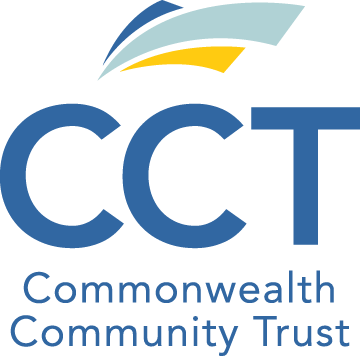Court Order Language
Suggested Language & Terms for Court Orders & Settlement Agreements
(Click Applicable Option Below)
1. First-Party PSNT
A first-party pooled special needs trust (PSNT) is funded with funds belonging to or owed to the Beneficiary, like a personal injury award, child support payments, or their own personal funds. Below are suggested terms to consider including in any court order that establishes or transfers funds to a first-party pooled special needs trust.
If possible, please send the draft court order to CCT for review prior to submission to the court. contact@trustCCT.org
If the court order is regarding a transfer from an existing first-party special needs trust, please also refer to the Trust Transfers page.
A. General provisions:
Background terms:
Commonwealth Community Trust (“CCT”) is a Virginia non-profit corporation and 501(c)(3) organization. CCT created the CCT First-Party Pooled Special Needs Trust (“the Trust”) for the benefit of individuals with disabilities and serves as trust administrator, pursuant to 42 U.S.C. § 1396p(d)(4)(C). CCT, along with the current Trustee, Capital First Trust Company, administers the Trust pursuant to the CCT First-Party Pooled Special Needs Trust Master Trust Agreement (“the Master Trust Agreement”), as amended from time to time, and the Joinder Agreement, both of which have been submitted to this Court. Nothing in this court order may be interpreted to modify the Master Trust Agreement or state and federal rules and regulations, including those regarding pooled special needs trusts and Medicaid payback.
If the Joinder Agreement submitted to the Court has not been completed, then the following language should be used:
Upon the death of [Beneficiary], the successor beneficiary shall be [insert successor beneficiary] and the contingent successor beneficiary shall be [insert contingent successor beneficiary], subject to the terms of the Master Trust Agreement, the Joinder Agreement, and state and federal rules and regulations in effect at that time.
Payee terms:
That $_________ shall be paid to Capital First Trust Company, Inc., or its successors, Trustee, of the Commonwealth Community Trust
First-Party Pooled Special Needs Trust for the benefit of [Beneficiary]. However, for simplicity, any checks written can be made payable to
"CCT 1P PSNT f/b/o [Beneficiary]."
B. Structured Settlements/Qualified Assignments:
Please send the draft Qualified Assignment to CCT for review if possible. contact@trustCCT.org
Payee:
Commonwealth Community Trust First-Party Pooled Special Needs Trust for the benefit of [Beneficiary]
Commutation clause:
For first-party pooled special needs trusts, CCT requests that there be a clause in the court order and Qualified Assignment that states that if the Beneficiary passes away before the annuity has made all payments, that the commuted value will be paid out and payments are not continued to be made to the sub-account. Many attorneys list the sub-account as the payee for the commuted value so that the funds are available for Medicaid payback, but this decision should be made by the attorney based on the law in their state.
C. Court Establishing the First-Party Sub-Account:
Social Security POMS SI 01120.203(D)(6) states that a first-party special needs trust (whether pooled or standalone) can only be established through the actions of the Beneficiary, their parent, their grandparent, their legal guardian, an agent under a power of attorney with sufficient authority, or a court. Even if there is no one else who can act, the pooled sub-account can always be established through the actions of the court.
Social Security POMS SI 01120.203(D)(7) states:
In the case of a trust account established through the actions of a court, the creation of the trust account must be required by a court order for the exception in section 1917(d)(4)(C) of the Act to apply. That is, the pooled trust exception can be met when courts approve petitions and establish trust accounts by court order, so long as the execution of the trust account joinder agreement and funding of the trust have not been completed before the order is issued by the court. Court approval of an already executed pooled trust account joinder agreement is not sufficient for the trust account to qualify for the exception. The court must specifically either establish the trust account or order the establishment of the trust account.
Suggested language:
This Court hereby orders the establishment of the CCT First-Party Pooled Special Needs Trust sub-account for the benefit of [Beneficiary], pursuant to the unsigned, but completed, Joinder Agreement submitted to this Court. Further, [insert name] is authorized to sign the Joinder Agreement after the entry of this order.
2. Third-Party PSNT
A third-party pooled special needs trust (PSNT) is funded with funds that belong to someone other than the Beneficiary and is generally funded by lifetime gifts or estate plans. Below are suggested terms to consider including in any court order that transfers funds to a third-party pooled special needs trust.
If possible, please send the draft court order to CCT for review prior to submission to the court. contact@trustCCT.org
If the court order is regarding a transfer from an existing third-party special needs trust, please also refer to the Trust Transfers page.
Background terms:
Commonwealth Community Trust (“CCT”) is a Virginia non-profit corporation and 501(c)(3) organization. CCT created the CCT Third-Party Pooled Special Needs Trust (“the Trust”) for the benefit of individuals with disabilities and serves as trust administrator. CCT, along with the current Trustee, Capital First Trust Company, administers the Trust pursuant to the CCT Third-Party Pooled Special Needs Trust Master Trust Agreement (“the Master Trust Agreement”), as amended from time to time, and the Joinder Agreement, both of which have been submitted to this Court. Nothing in this court order may be interpreted to modify the Master Trust Agreement or state and federal rules and regulations.
If the Joinder Agreement submitted to the Court has not been completed, then the following language should be used:
Upon the death of [Beneficiary], the successor beneficiary shall be [insert successor beneficiary] and the contingent successor beneficiary shall be [insert contingent successor beneficiary], subject to the terms of the Master Trust Agreement, the Joinder Agreement, and state and federal rules and regulations in effect at that time.
Payee terms:
That $_________ shall be paid to Capital First Trust Company, Inc., or its successors, Trustee, of the Commonwealth Community Trust
Thrid-Party Pooled Special Needs Trust for the benefit of [Beneficiary]. However, for simplicity, any checks written can be made payable to
"CCT 3P PSNT f/b/o [Beneficiary]."
3. Settlement Preservation
A settlement preservation pooled trust (SPPT) is funded by settlement proceeds or court awards for the Beneficiary. Below are suggested terms to consider including in any court order that establishes or transfers funds to a settlement preservation pooled trust.
If possible, please send the draft court order to CCT for review prior to submission to the court. contact@trustCCT.org
If the court order is regarding a transfer from an existing settlement preservation trust, please also refer to the Trust Transfers page.
A. General provisions:
Background terms:
Commonwealth Community Trust (“CCT”) is a Virginia non-profit corporation and 501(c)(3) organization. CCT created the CCT Settlement Preservation Pooled Trust (“the Trust”) for the benefit of vulnerable and disabled individuals and serves as trust administrator. CCT, along with the current Trustee, Capital First Trust Company, administers the Trust pursuant to the Settlement Preservation Pooled Trust Master Trust Agreement (“the Master Trust Agreement”), as amended from time to time, and the Joinder Agreement, both of which have been submitted to this Court. Nothing in this court order may be interpreted to modify the Master Trust Agreement or state and federal rules and regulations.
If the Joinder Agreement submitted to the Court has not been completed, then the following language should be used:
Upon the death of [Beneficiary], the successor beneficiary shall be [insert successor beneficiary] and the contingent successor beneficiary shall be [insert contingent successor beneficiary], subject to the terms of the Master Trust Agreement, the Joinder Agreement, and state and federal rules and regulations in effect at that time.
Payee terms:
That $_________ shall be paid to Capital First Trust Company, Inc., or its successors, Trustee, of the Commonwealth Community Trust
Settlement Preservation Pooled Trust for the benefit of [Beneficiary]. However, for simplicity, any checks written can be made payable to
"CCT SPPT f/b/o [Beneficiary]."
At the age of [insert age], all principal and income contained in the sub-account may be distributed to the Beneficiary, subject to the terms of the Master Trust Agreement.
B. Disbursements for Minors:
If the minor has living parents, then CCT must consider the parents’ duty of support when making any distributions. If the goal is for specific or ongoing distributions to be made for the minor, especially for housing, food, and other essentials, these terms should be detailed in the court order with as much specificity as possible.
C. Structured Settlements/Qualified Assignments:
Please send the draft Qualified Assignment to CCT for review if possible. contact@trustCCT.org
Payee:
Commonwealth Community Trust Settlement Protection Pooled Trust for the benefit of [Beneficiary]
Commutation clause:
For settlement preservation pooled trusts, CCT requests that there be a clause in the court order and Qualified Assignment that states that if the Beneficiary passes away before the annuity has made all payments, that either (1) the commuted value will be paid out and payments are not continued to be made to the sub-account or (2) the payments continue to be made to the person(s) approved by the court, but not to the sub-account.


